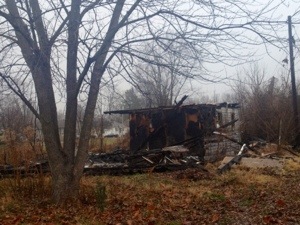By JIM MUIR
UMWA President John L. Lewis was on the scene at Orient 2 the day after the explosion and the legendary union boss went underground at the ill- fated mine while rescue operations were still under way.
Lewis, known for his no-nonsense approach with coal operators and his untiring devotion to improve conditions for union miners, was visibly shaken when he left the mine. He wasted little time leveling an attack on mining laws that he said needed to be revised.
“Necessary legislative steps would prevent these recurring horrors,” Lewis said. “They are totally unnecessary and can be prevented. Unless all mines are forced to comply with the safety codes of the Federal Bureau of Mines, the mining industry will continue to be a mortician’s paradise.”
Exactly two months later, on Feb. 21, 1952, Lewis testified before the U.S. House of Representatives Subcommittee on Mine Safety, and once again used the Orient 2 explosion as an example that mining laws must be improved.
Lewis said in part: “On Dec. 21, 1951, at the Orient 2 Mine, 119 men were killed. Their average age was 40.9 years old, the youngest was 19 and the oldest was 64. Aside from the human values that were destroyed in this explosion, the community and the state suffered a monetary loss in the contribution that those men would have made had they been permitted to live; or if their lives had been safeguarded; or if one coal company had carried out the provisions of the existing federal code of safety, promulgated by the U.S. Bureau of Mines. That is all, in the judgment of experienced mining men, that would have been necessary to have saved the lives of those 119 men and avoided the disruption of the lives of 175 children growing up to manhood and womanhood.”
Lewis didn’t mince words when he spoke before Congress offering a stinging rebuke about mining laws and practices.
“The Orient explosion was preventable, preventable in the judgment of the U.S. Bureau of Mines, as testified here by its able director. The Orient explosion was preventable in the judgment of every man in the industry that has knowledge of sound mining practices. So, the record runs on, explosion after explosion through the years. Management was at fault in the West Frankfort explosion. It failed to take proper precautions in the face of abnormal conditions that intensified the hazard. Management didn’t take those steps. As a matter of fact, I think it is conceded by those qualified to speak on the subject that every mine explosion and disaster we’ve had in our country since 1940 would have been prevented if the existing code of safety had been enforced.”
The legendary union boss concluded his comments with a powerful and graphic description of what took place in Franklin County in the aftermath of the explosion.
“And the mining industry continues to be a mortician’s paradise. I just watched 119 funerals in two days in Franklin County — 119 funerals in two days! Can you imagine anything more heart-rendering, more soul- stirring? 119 funerals in that little county in two days! They went to work, the last shift before Christmas … and many of them were brought home to their loved ones in rubber sacks — rubber sacks! Because they were mangled, and shattered and blown apart and cooked with methane gas, until they no longer resembled human beings. And the best the mortician could do was put them in rubber sacks with a zipper. And then, for a Christmas present in Franklin County, 119 families could look at rubber sacks in lieu of their loved ones.”


